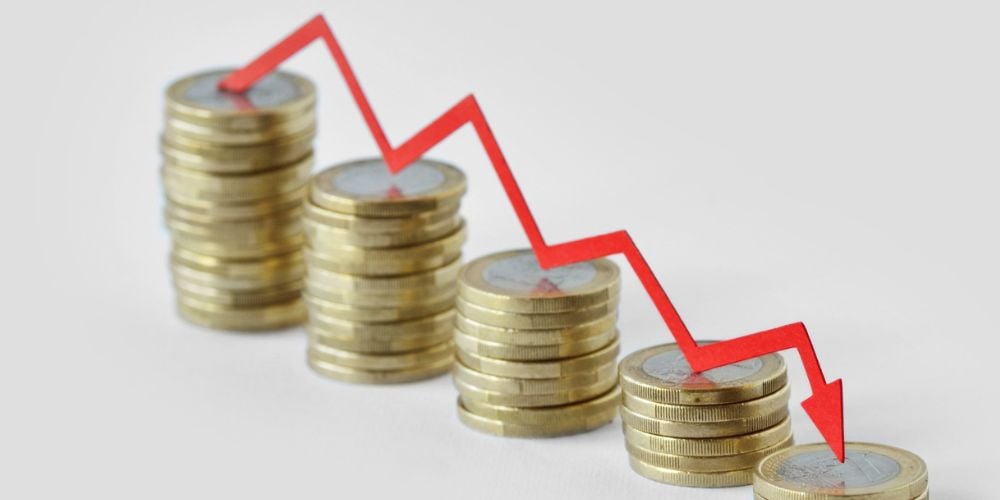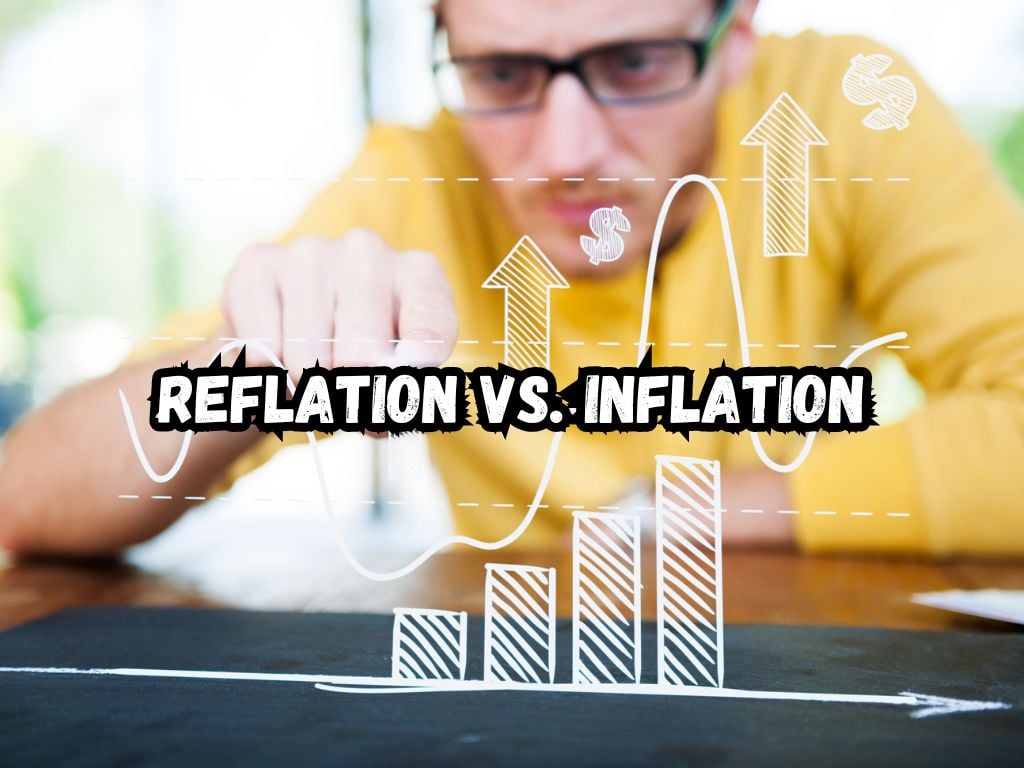In today’s financial landscape, understanding the factors that influence your credit report is essential.
Two terms that often come up in discussions about the economy and its impact on credit are reflation and inflation. While both terms refer to fluctuations in the economy, they have distinct meanings and implications for your credit report.
In this article, we will delve into the world of reflation vs inflation, explore their effects on credit reports, and provide strategies for managing your credit during these periods.
Understanding Reflation
Reflation refers to the deliberate efforts made by governments or central banks to stimulate economic growth and increase inflation rates. It involves implementing policies like fiscal stimulus and monetary easing to boost consumer spending and business investment.
Definition and Explanation
Reflation can be defined as the process of stimulating an economy through monetary and fiscal policies. The goal is to counteract the effects of deflation or an economic downturn by encouraging spending, borrowing, and investment.
During a reflationary period, the government may increase infrastructure spending, lower interest rates, or implement tax cuts to stimulate economic activity. The increased government spending and borrowing can have significant effects on your credit report.

Effects of Reflation on Credit Reports
Impact on Interest Rates:
During reflation, central banks may lower interest rates to encourage borrowing and spending. This can lead to lower interest rates on existing loans and credit cards.
As a result, borrowers may have the opportunity to refinance their debts at lower rates, potentially reducing their monthly payments.
Influence on Credit Availability and Lending Practices:
Reflationary policies often result in an increase in credit availability as banks are encouraged to lend more money. This means that borrowers may find it easier to obtain new credit or loans during a reflationary period.
However, it is important to note that lenders may also relax their lending standards during these periods, leading to increased risk for borrowers.
As a result, it becomes crucial to monitor your credit report and stay vigilant against predatory lending practices.
Impact on Borrowers’ Creditworthiness:
Reflation can have varying effects on borrowers’ perceived creditworthiness. Some borrowers may benefit from lower interest rates and increased credit availability, which can positively impact their credit scores.
Conversely, borrowers who accumulate excessive debt during reflationary periods may face challenges in maintaining a good credit standing.
It is important to carefully assess your financial situation and make informed borrowing decisions during reflation. By staying vigilant and managing your credit responsibly, you can mitigate any negative impacts on your credit report.
Key Notes
During periods of reflation, it is crucial to pay close attention to your credit report and manage your credit effectively. Here are some key notes and pro tips to consider:
Importance of Monitoring Credit Reports:
Regularly monitoring your credit report allows you to stay informed about any changes or discrepancies. This helps you detect potential errors, identity theft, or fraudulent activities that can impact your creditworthiness.
Consider using free credit monitoring services or requesting a free annual credit report from the major credit bureaus.
Strategies for Managing Credit during Reflation:
- Paying bills on time: Timely payments contribute to building a positive credit history, which is vital for your overall credit score. Set up reminders or automated payments to ensure you never miss a payment.
- Reducing credit card debt: High credit card balances can negatively impact your credit utilization ratio. Aim to keep your utilization rate below 30% by paying down your balances as much as possible.
- Responsible borrowing: While credit availability may be higher during reflation, make sure to borrow only what is necessary and affordable. Avoid taking on excessive debt that could strain your finances in the long run.
Tips for Leveraging Reflation to Improve Credit Scores:
- Refinancing existing loans: If interest rates have decreased during a reflationary period, consider refinancing your mortgage or other loans to take advantage of lower rates. This can help you reduce monthly payments and potentially improve your credit score.
- Negotiating better terms: As credit becomes more readily available, you may have the opportunity to negotiate better terms on loans or credit cards. Seek out competitive offers and terms that align with your financial goals.
Understanding Inflation
Inflation refers to a general increase in prices of goods and services over time. It erodes the purchasing power of money and affects the overall economy. Inflation can be caused by various factors, including excessive money supply, increased demand, or changes in production costs.
Definition and Explanation
Inflation can be defined as the sustained increase in the general price level of goods and services in an economy over a period of time. It is typically measured by various inflation indices, such as the Consumer Price Index (CPI).
When inflation occurs, the cost of living rises, and the value of money decreases. Retail prices for goods and services increase, impacting consumers’ purchasing power and financial stability. Let’s explore how inflation affects credit reports.

Effects of Inflation on Credit Reports
Relationship between Inflation and Interest Rates:
Inflation has a direct impact on interest rates. As inflation rises, central banks may increase interest rates to control the money supply and stabilize prices.
Higher interest rates can lead to increased borrowing costs, affecting credit card APRs, mortgage rates, and other loan terms.
Influence on Debt Management and Repayment Strategies:
Inflation can impact your ability to manage and repay debts effectively. As the cost of living increases, borrowers may find it challenging to meet their financial obligations. Conversely, inflation makes it easier to pay off outstanding debts, since they are being paid with less valuable dollars than when they were incurred.
Additionally, inflation can result in stagnant wages, reducing disposable income and making it harder to meet debt obligations. It becomes crucial to prioritize debt repayment, carefully budget expenses, and consider strategies for managing debt during inflationary periods.
Impact on Credit Utilization and Debt-to-Income Ratio:
Inflation can indirectly affect your credit utilization and debt-to-income ratio, both of which are important factors in determining creditworthiness.
Higher inflation can lead to increased expenses and financial strain, potentially pushing borrowers to use more of their available credit.
Using a larger portion of your available credit can negatively impact your credit utilization ratio, which may result in a lower credit score.
Key Notes
Managing credit during an inflationary period requires careful consideration and proactive steps. Here are some key notes and pro tips to help you protect your credit during inflation:
Assessing and Adjusting Credit Management Strategies:
Review your current financial situation and adjust your credit management strategies accordingly. Consider reallocating funds towards debt repayment, reducing discretionary expenses, and developing a realistic budget that accounts for potential inflationary effects.
Strategies to Mitigate the Negative Effects of Inflation:
- Diversify your investments: During inflation, certain asset classes may perform better than others. Consider diversifying your investment portfolio to include assets that can hedge against inflation, such as stocks, real estate, commodities, or inflation-indexed bonds.
- Negotiating with creditors: If inflation affects your ability to meet debt obligations, reach out to your creditors and discuss potential solutions. They may be willing to offer flexible repayment options or reduced interest rates to help you manage your debt during inflationary periods.
Pro Tips for Protecting Credit Scores during Inflation:
- Maintain an emergency fund: Having an emergency fund can provide a financial buffer during inflationary periods. It can help you cover unexpected expenses and reduce the need to rely on credit cards or loans.
- Regularly review credit reports: Stay vigilant by monitoring your credit reports for any inaccuracies, errors, or signs of fraudulent activity. Promptly report any discrepancies to the credit bureaus to ensure the accuracy of your credit history.
Reflation vs Inflation: Let’s Compare The Two
While reflation and inflation may seem conceptually similar, they have distinct differences in their definitions, causes, and effects on credit reports and borrowing behaviors. Let’s explore these differences while also highlighting their similarities.
Differences Between Reflation and Inflation
Distinctions in Definitions and Causes:
Reflation is a deliberate policy effort by governments or central banks to stimulate economic growth and increase inflation rates. In contrast, inflation refers to a general increase in the overall price level of goods and services in an economy.
Variances in Economic Indicators and Measurements:
Reflation is typically measured through indicators like GDP growth rates, government spending, or changes in interest rates. Inflation is commonly measured using inflation indices, such as the CPI or Producer Price Index (PPI).
Contrasting Effects on Credit Reports and Borrowing Behaviors:
Reflation can impact credit reports by influencing interest rates, credit availability, and borrowers’ creditworthiness. Inflation affects credit reports by influencing interest rates, debt management, and credit utilization ratios.

Similarities Between Reflation and Inflation
Impact on Interest Rates and Borrowing Costs:
Both reflation and inflation can lead to changes in interest rates, affecting borrowing costs. During reflation, central banks may lower rates to encourage borrowing, while during inflation, rates may increase to control rising prices.
Implications for Credit Availability and Lending Practices:
Both reflation and inflation can impact credit availability and lending practices. Reflationary measures often lead to increased credit availability, while inflationary pressures may prompt lenders to tighten lending standards.
Importance of Credit Monitoring and Management:
Regardless of whether the economy experiences reflation or inflation, it is crucial to monitor and manage your credit effectively. Regularly monitoring your credit report, maintaining a good credit score, and making informed borrowing decisions are key practices during both periods.
Frequently Asked Questions
How does reflation differ from inflation?
Reflation refers to a deliberate policy effort by governments or central banks to stimulate economic growth and increase inflation rates. Inflation, on the other hand, refers to a general increase in the overall price level of goods and services in an economy.
Can reflation or inflation have a positive impact on my credit score?
Reflation or inflation alone does not inherently have a positive impact on your credit score. However, responsible credit management during these periods can help minimize the negative effects and potentially improve your credit score.
What are the strategies to protect my credit during times of reflation or inflation?
Strategies to protect your credit during reflation or inflation include monitoring your credit reports regularly, paying bills on time, reducing credit card debt, and managing credit utilization. (Of course, these are good ideas at all times.)
Additionally, consider diversifying your investments and negotiating with creditors if needed.
How does inflation impact loan repayments and debt management?
Inflation can impact loan repayments and debt management by reducing the purchasing power of money. As the cost of living increases, borrowers may find it challenging to meet their financial obligations.
It is important to prioritize debt repayment, budget effectively, and consider negotiating with creditors if necessary.
Conclusion
Understanding the implications of reflation and inflation on your credit report is crucial for managing your credit effectively.
Reflation and inflation have distinct meanings and effects on interest rates, credit availability, and borrowing behaviors.
By monitoring your credit report regularly, making informed borrowing decisions, and adopting proactive credit management strategies, you can navigate the challenges presented by these economic periods.
Stay proactive, stay informed, and protect your creditworthiness during reflation and inflation.


 Tags:
Tags:










